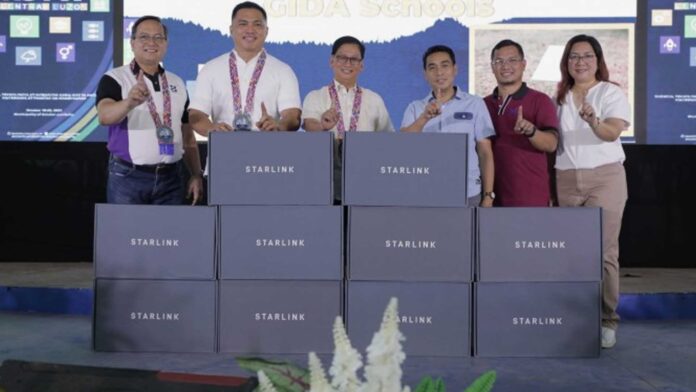Learners in geographically isolated and disadvantaged areas (GIDA) in Central Luzon will soon have access to the internet which could help address the digital gaps in the education sector.
The Department of Science and Technology-Central Luzon (DOST-3) on Friday awarded Starlink satellite internet service to 70 remote schools in the region’s seven provinces – Aurora, Bataan, Bulacan, Nueva Ecija, Tarlac, Pampanga and Zambales.
DOST Regional Director Julius Caesar Sicat said Starlink, a satellite-based technology from SpaceX, will enable the 70 GIDA as well as indigenous peoples (IP) schools to connect to the digital world and give students access to a vast array of educational resources and connect with the global community.
“This Starlink offers a lifeline to these remote schools, connecting them to the vast resources and opportunities available through the internet,” Sicat said during the turnover ceremony, one of the highlights of the ongoing Regional Science Technology and Innovation Week celebration in Botolan, Zambales.
He said that in an era dominated by digital advancements, access to quality education is a challenge, especially for those learners in remote communities.
“By promoting digital inclusion, we are leveling the playing field, enabling students to pursue educational opportunities and gain vital skills and knowledge for a brighter future. Dapat walang naiiwan (No one should be left behind),” he added.
The Starlink kit, complete with a satellite dish and router, was distributed to the school recipients plus a one-year free internet subscription under the Community Empowerment Thru Science and Technology (CEST), one of the banner programs of DOST.
“The DOST would shoulder the cost of connecting school recipients to Starlink and the one-year subscription. After one year, the schools have committed to pay the subscription expenses for continuous internet connectivity,” he said.
Teacher Melanie Arellano Dela Cruz of the Kanaynayan Community School in Barangay San Pablo, Castillejos, Zambales, thanked the DOST for the internet connectivity that will widen the information resource materials for their learners to tap in their studies, research and regular academic concerns.
“I hope the DOST would reach out to more remote academic institutions so that everybody can have access to the internet,” Dela Cruz said. (PNA)




